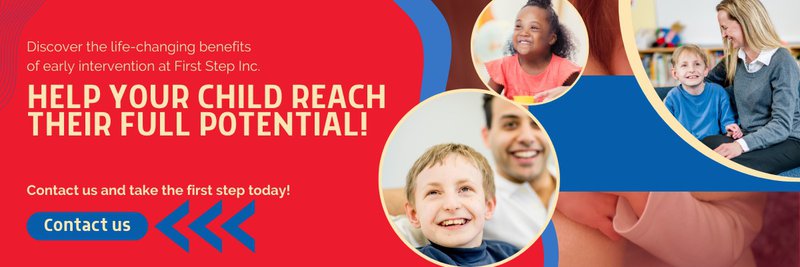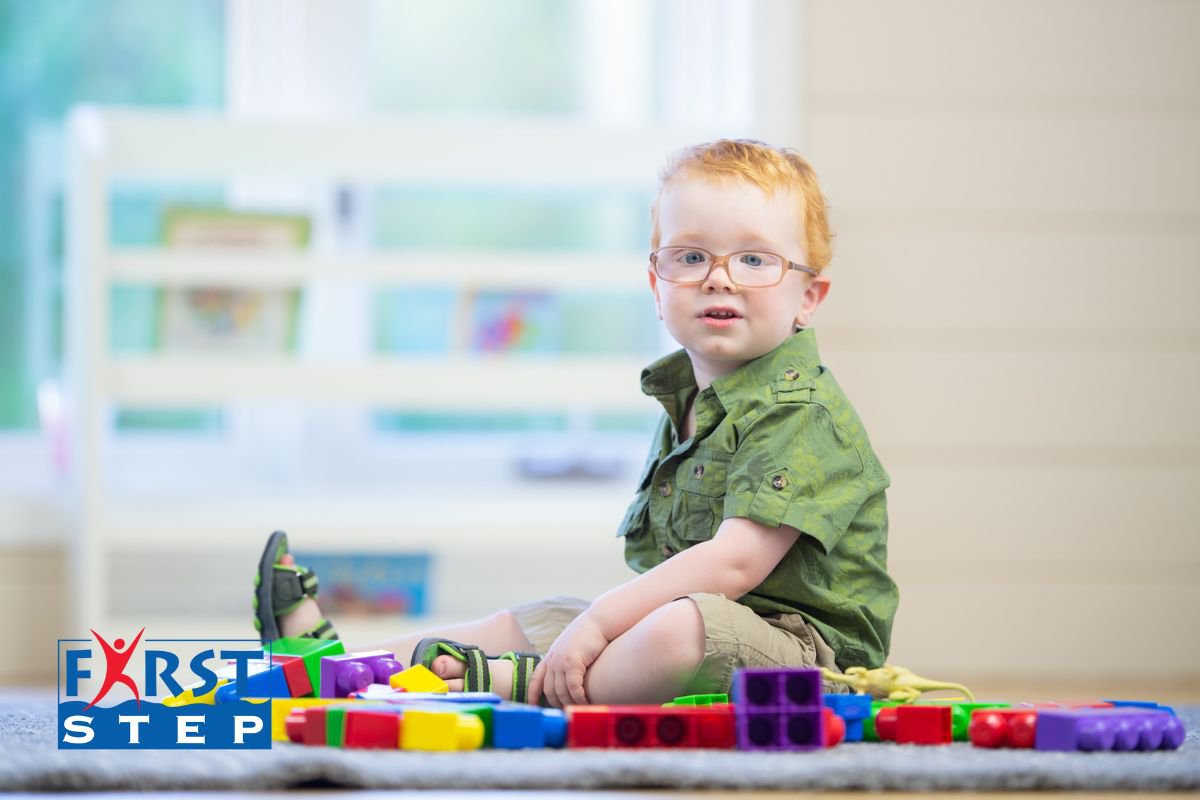Early intervention changes lives. The earlier a child gets support, the better their brain adapts. Studies show that early therapy builds stronger skills in thinking, speaking, and socializing. For children with autism or developmental delays, these interventions can shape their future success. As a caregiver, you want the best for your child. Learning about early intervention impact on child development gives you the tools to help them thrive.
Key Takeaways:
- Early intervention and impact on child development: It helps children with developmental delays or disabilities by providing support within the first three years, when the brain develops the fastest.
- Brain plasticity allows young children's brains to adapt and form new connections, improving learning and development through early therapy.
- Early diagnosis also leads to better long-term outcomes, reducing the need for extra school support. Parents should seek medical advice if delays are suspected.
- Intervention programs improve cognitive, social, and emotional skills, leading to better academic performance, friendships, and independence.
- Therapies like speech, occupational, and physical therapy also help children develop key skills for communication, movement, and daily tasks.
- Government-funded programs (IDEA Part C) provide free or low-cost early support, but funding challenges and eligibility differences can limit access.
- Parental involvement and play-based learning strengthen early intervention benefits at home.
- Healthcare professionals, especially pediatricians, play a key role in detecting and addressing developmental concerns early.

Early Intervention & Impact on Child Development
Early intervention helps children with developmental delays or disabilities by providing support before challenges grow. It focuses on the first three years of life when learning happens more easily. During this time, the brain changes quickly, making it the best time to work on new skills.
Supports Childhood Brain Development
The first three years are when a child’s brain forms important connections. These connections help with thinking, learning, movement, and emotions. When children experience delays, early support can help their brains adjust and grow in new ways. This is called brain plasticity in young children. The brain can make new pathways, but this happens more easily when a child is young.
Therapies like speech and physical therapy guide the brain to create stronger connections. The earlier these services begin, the more a child can learn and improve.
Early Diagnosis and Long-term Success
The sooner a child gets help, the better their chances of learning key skills. Early diagnosis benefits include improved speech, movement, and social abilities. If therapy starts early, children may need less help in school later on.
Doctors check for early signs of developmental delays at regular child checkups. Parents who notice concerns should talk to a doctor right away. Waiting could make it harder for a child to catch up later.
How Early Intervention Programs Shape a Child’s Future
Children who receive early help are more likely to do well in school and build strong relationships. Many families have seen their child gain confidence and independence through early childhood intervention programs. These programs support not just the child but also parents, teaching them how to encourage learning at home.
Research shows that early support reduces the need for special education later. It also helps with future job skills and everyday independence. By starting early, we give every child the best chance to grow and succeed.
Early Intervention Impact & Child Development: Benefits
Early intervention helps children develop strong thinking and learning skills. When a child struggles with speech, memory, or problem-solving, support can have a big impact. Programs like speech therapy teach kids how to express themselves better. Occupational therapy helps with tasks like holding a pencil or tying shoes.
Young brains also grow quickly. The first three years shape how kids learn later in life. Without early support, small challenges can become bigger obstacles in school. A child who gets help early may read better, solve problems faster, and stay engaged in class.
When a child learns new skills sooner, they feel more confident. They enjoy learning and do better in school. Studies show that children in early programs are more likely to graduate high school and attend college.
Supporting Social Growth
Children who struggle with talking or understanding emotions may find making friends difficult. Early intervention teaches them how to connect with others. Therapy helps kids learn to take turns, share, and play cooperatively.
Some kids have trouble picking up on social cues, like body language or facial expressions. By practicing through role-play and guided playtime, they learn how to respond in conversations.
When kids feel accepted by their peers, they are happier and more confident. They join group activities without fear and are less likely to feel lonely. Early help strengthens future friendships.
Emotional Development
Emotional growth starts early. Kids who struggle with emotions may also have trouble handling frustration or controlling impulses. Early intervention impacts emotional childhood development and teaches them how to express feelings in a safe way.
Through structured activities, therapists show kids how to calm down when upset. They may use picture cards to label emotions or breathing exercises to ease stress. These tools help children manage their feelings before they turn into tantrums or outbursts.
When kids learn emotional control, they do better in school and at home. They handle challenges with patience and build stronger relationships with family and friends. Early intervention gives them skills that support lifelong success.
What Developmental Challenges Early Intervention Addresses
Early intervention provides focused support to help children overcome developmental delays. A developmental delay occurs when a child does not reach milestones at the expected time. These can affect speech, motor skills, problem-solving, or social abilities. The earlier a child gets help, the better they can learn and catch up.
Therapists and specialists design programs to address specific needs. Speech therapy helps with language skills, while physical therapy strengthens movement and coordination. Occupational therapy focuses on daily activities like eating or dressing. These services improve a child's ability to learn, build confidence, and interact with others.
If parents notice delays, they should talk to a doctor and request a developmental screening. Every U.S. state has an early intervention program, often free or low-cost, to support children from birth to three years old.
Support For Children with Autism or ADHD
Children with autism spectrum disorder (ASD) or ADHD can benefit from early therapies that meet their unique needs. For autism, programs like Applied Behavior Analysis (ABA) improve learning and social interaction. Early support in autism aids in language development, understanding social cues, and creating structured routines. Speech therapy and occupational therapy also help children manage sensory challenges and improve communication.
For children with ADHD, early intervention focuses on structured activities that teach focus and self-control. Behavioral coaching helps with task management and emotional regulation. Teaching strategies, like visual schedules and reward systems, support learning and behavior at home and school.
Families can find resources through doctors, schools, and organizations like the CDC's early intervention programs.
How Early Intervention Supports Childhood Mental Health
Mental health challenges can appear early and affect emotions, behavior, and relationships. Signs may include frequent tantrums, extreme shyness, aggression, or difficulty expressing feelings. Early intervention helps children manage emotions, build healthy relationships, and cope with stress.
Therapists use play-based therapy to help children express emotions in a safe way. Cognitive-behavioral strategies teach kids how to navigate frustration and anxiety. Parent training programs offer guidance for handling behavioral challenges at home.
Addressing mental health needs early builds self-esteem and emotional resilience. Support can prevent future obstacles such as anxiety, depression, or school difficulties. Parents should seek guidance if they have concerns about their child’s emotions or behavior.
Early intervention strengthens brain development, supports cognitive and social growth, and helps children with autism, ADHD, and developmental delays thrive. Research-backed strategies, education programs, and home support all play a role. Pediatricians lead early detection efforts, while policies and funding shape access. The earlier children receive care, the better their future outcomes. Learn the signs, explore resources, and advocate for early support. Every step you take matters in a child's life.
How Early Intervention Impacts Child Development
Early intervention can significantly improve a child’s cognitive, social, and motor skills. By addressing developmental delays early, children gain confidence and independence as they grow. Give your child the support they need—contact First Step Arkansas to learn more about our services.


